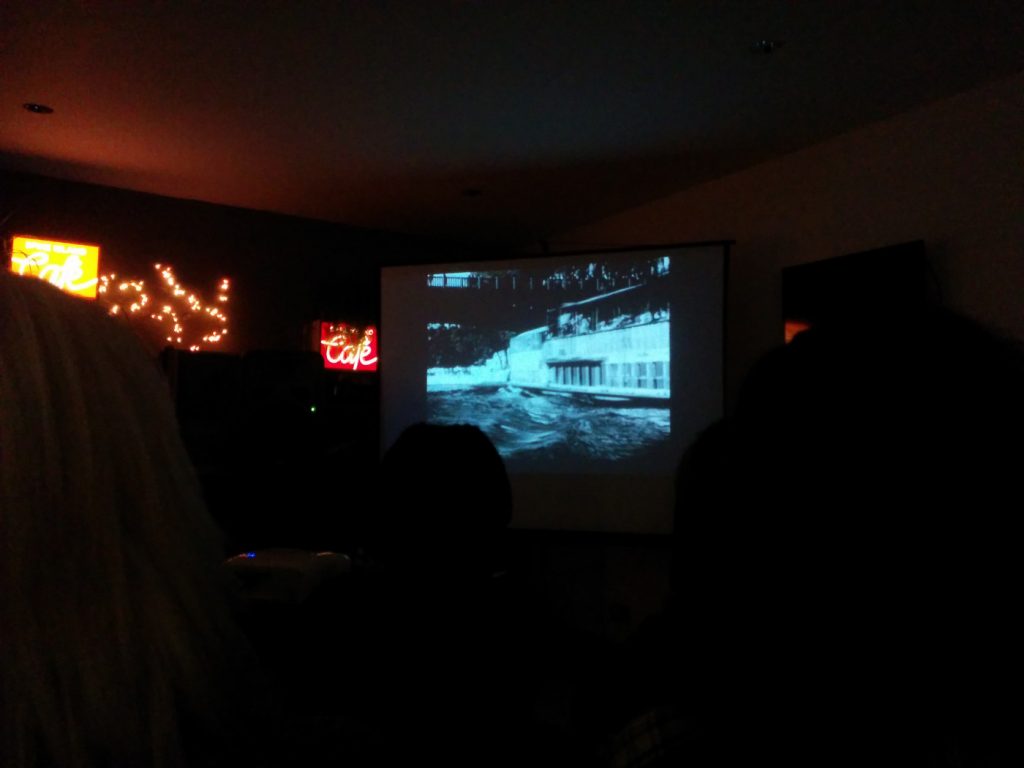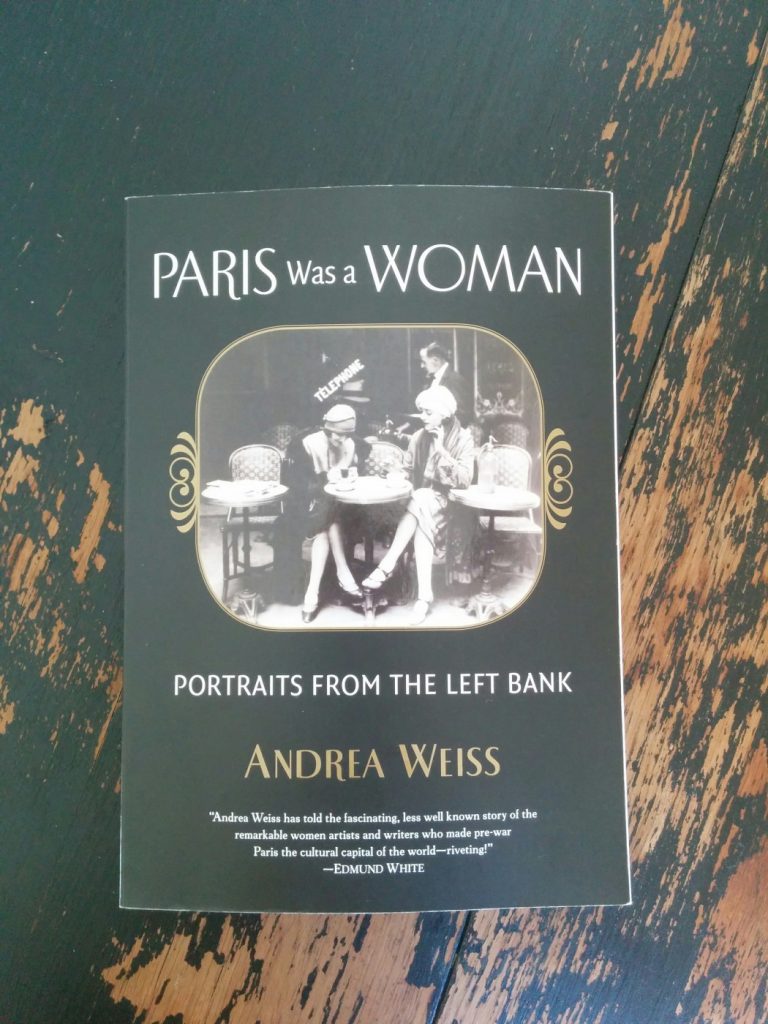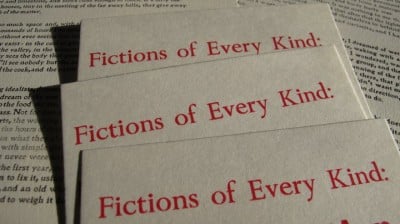
Photo: Hannah Emadian. On screen: ‘Paris was Woman’, dir. Greta Schiller (1996).
The third annual Bristol Women’s Literature Festival began with a launch event hosted at Spike Island artspace. The cafe was filled to capacity with an all female audience. The atmosphere was warm and friendly, as everyone bustled to buy cakes, and teas, and wine, and, chattering, found their seats. The organiser began with a reading of ‘Ada’ by Gertrude Stein – a delicately erotic love letter to her wife, Alice B. Toklas. This was followed by three other readings, including ‘The Hand’ by Collette, and a fragment from Djuna Barnes’ cult classic ‘Nightwood’. Receptive and warm, we relaxed into our stiff seats as the lights were dimmed and the main event – a screening of the hard to find documentary, ‘Paris was a Woman’ – began.
Set against the black and white backdrop of 1920s Paris, narrator Andrea Weiss took us on a literary journey into the lives of the women who occupied the Left Bank. These women stood in proud opposition to the men who dominated the scene at the time, who excluded them from their art academies, denied them formal education and were, in some cases, consequently left behind on far away continents. They found muses in each other, and sometimes lovers. In Paris they found a place in which they could proudly be intellectual, artistic, lesbian, female. They found a place where they could write and have their words read. Amongst them, a collection of figures, often paired, paved the way, hosting salons or bookshops, publishing each other and themselves. One of these such figures was Gertrude Stein, along with her partner-muse, Alice B. Toklas. Whilst herself greatly uncelebrated, Stein is responsible for the fame of surrealist painter, Pablo Picasso. Along with her brothers, she funded his early career, purchasing a great number of Picasso’s works, which lined the walls of her home-come-literary salon.

Photo Hannah Emadian. ‘Paris was a Woman’ by Andrea Weiss (screenwriter and narrator of documentary of the same name) (1995).
Another pivotal duo discussed in the documentary were Sylvia Beach and Adrienne Monnier. They established a pair of bookshops, the latter for the French, the former for English and American readers, but the two very much operated in unison with one another. Beach set up the world famous and ever popular Shakespeare and Company, now situated in a prime location opposite Notre Dame. Rather at odds with the philosophy of the Left Bank ladies, Beach was only able to purchase and open her business thanks to the financial support of her father. Nonetheless, Shakespeare and Co. became the home and heart of the English language literary movement in Paris at the time, for all manner and gender of writers and readers. Beach famously published James Joyce’s ‘Ulysses’ in 1922, when no other publisher was willing to accept it. Tragically, Joyce betrayed Beach, accepting a last minute offer from Random House, leaving Beach heavily in debt from publication costs. Had she paid greater attention to the largely unpublished and struggling Stein – and kept their endeavours primarily female – perhaps her fortunes would have differed.
Greta Schiller, the filmmaker behind the documentary, was kind enough to permit Spike Island to show her work free of charge as part of Bristol Women’s Literature Festival. This, I think, is the perfect honorarium to the female subjects of her film – to share and promote the work of our foremothers, to makes muses for and of one another. And as the credits rolled, and crowd dispersed, an air of excitement lingered as we all looked forward to a full weekend of events celebrating, exposing, and encouraging the specifically female within the shared wider literary landscape, of Bristol, and beyond.
Hannah is the regional editor of The State of the Arts in Bristol. Every month she selects one ‘Well Lit’ literary event for review. Last month, Bristol Women’s Literature Festival Launch empowered the idea of woman as muse, with a special screening of literary documentary, ‘Paris was a Woman’.




Comments